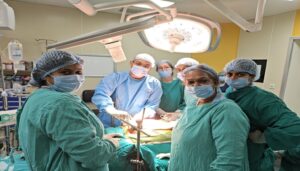Bihar Expands Infant Care Program with Free Ambulance Service for Sick Newborns

Patna: In a significant move to improve healthcare for newborns, the state government, along with the State Health Committee, has introduced new facilities in the Special Newborn Care Units (SNCU) across Bihar. The latest initiative includes a free ambulance service that will transport weak and sick newborns to and from SNCUs, ensuring better post-discharge care.
State Program Officer for Child Health, Dr. Vijay Prakash Rai, has directed all civil surgeons to provide this free ambulance service under the Janani Shishu Suraksha Program. This service aims to reduce the financial burden on families and ensure seamless care for newborns in need.
Dr. Rai emphasized that all newborns admitted to SNCUs should be referred using government ambulances, and after treatment, they should be transported back home via the same free service. From April to August this year, 8,378 children were referred to SNCUs, but 5,025 of them had to rely on private ambulances. This new initiative seeks to eliminate the need for private services and provide universal access to government ambulances for such referrals.
SNCUs play a vital role in treating critically ill newborns, especially those with low birth weight, premature birth, breathing difficulties, or hypothermia—conditions that contribute to newborn mortality. By providing specialized care in these units, the government aims to reduce infant mortality rates in the state.
“These steps will help save lives,” said Dr. Rai, adding that SNCUs are equipped to handle the most serious conditions in newborns. With the added facility of free ambulances, parents will no longer have to worry about transportation costs, which often add to the stress of medical care.
This comprehensive approach, which includes both critical care and post-discharge transport, is part of the government’s ongoing efforts to improve newborn health and reduce the infant mortality rate in Bihar. The new ambulance service ensures that families are supported throughout the treatment process, from hospital admission to returning home.








